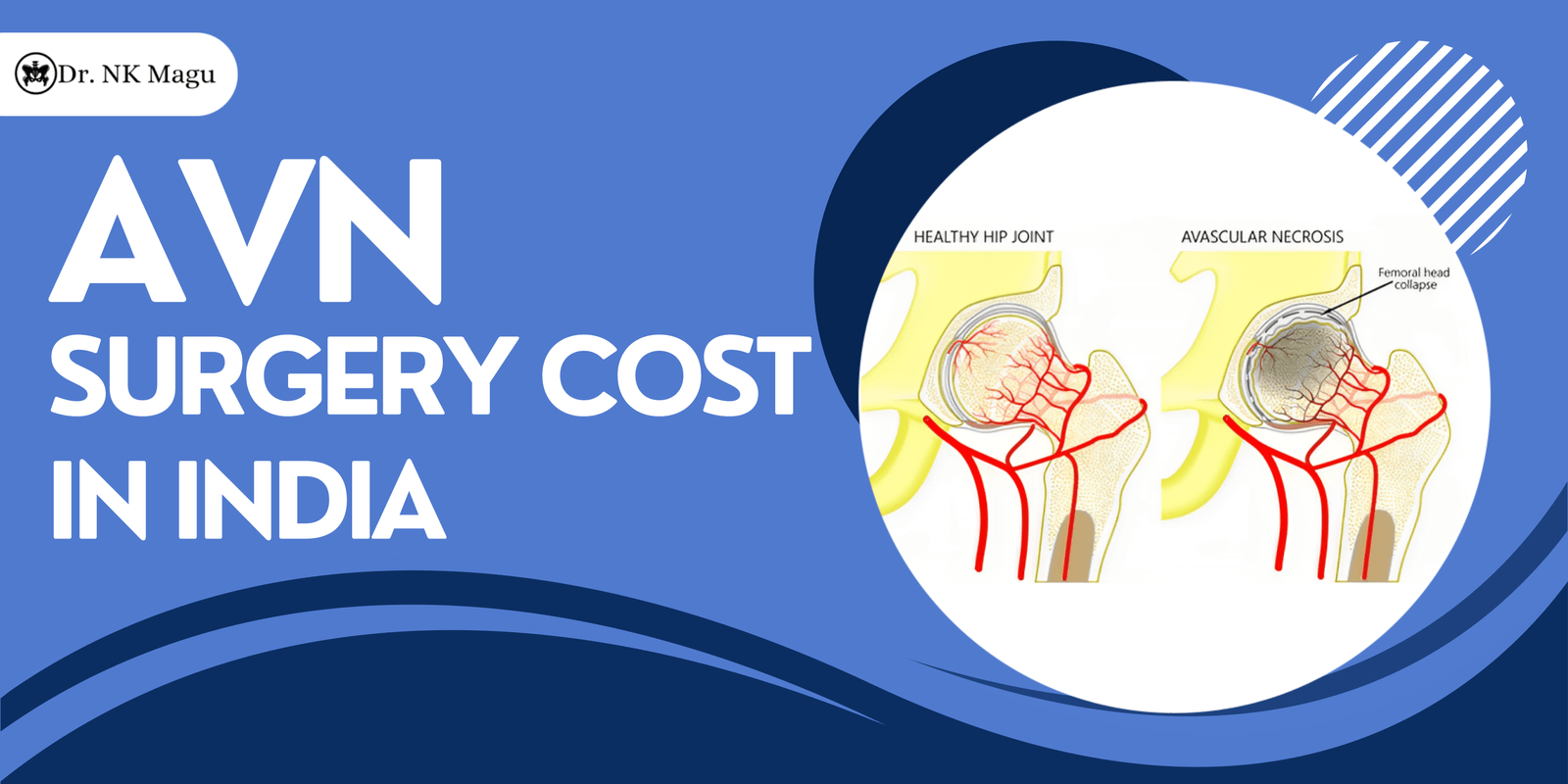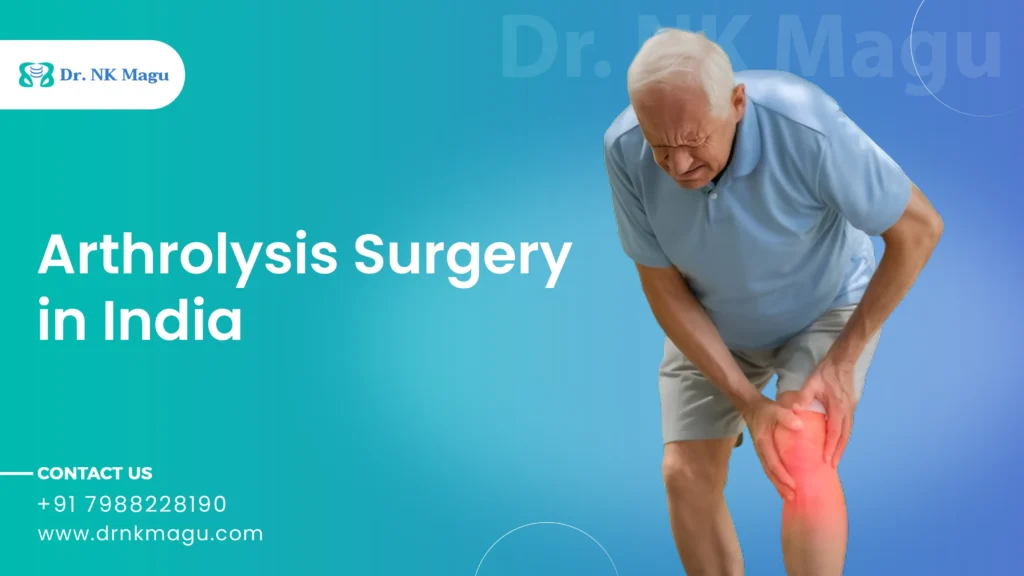The degeneration of bone tissue brought on by a lack of blood supply is known as avascular necrosis. Often known as osteonecrosis, it can result in minute fractures and the collapse of the bone. Normally, the procedure takes months or years.
The circulation of blood to a portion of bone might be interrupted by an injury such as a fracture or a dislocated joint. Excessive consumption of alcohol and long-term usage of high-dose steroid medicines are linked to avascular necrosis.
What is AVN Surgery?
Surgery for avascular necrosis (AVN) is advised to be performed when non-operative treatment is ineffective in relieving your hip pain or discomfort or if there is a high chance of further collapse of the ball which will exacerbate the condition. AVN is a progressive disease, and non-surgical treatments may slow down the progression but surgery is usually needed eventually.
In most cases, the dead bone tissue is removed and replaced with a new healthy bone from the other body parts mainly taken from the fibula. This allows restoration of the blood supply by reconnecting the blood vessels. Sometimes the bone is cut to change the alignment instead of replacing it to relieve the pressure within. In some cases, the bone is directly replaced with an artificial implant
How is it Caused?
The blood continuously supplies an adequate amount of nutrients and oxygen to the bones allowing it to stay healthy and regenerate. Avascular necrosis occurs when there is a reduction or interruption in the blood flow that supplies the bone. It can result from:
- Diseases: Some diseases such as sickle cell anemia, Pancreatitis, and Systemic lupus erythematosus can decrease the flow of blood into the bone.
- Deposition of fats in the blood vessels: When there is fat deposition in the blood, it can block small veins and restrict the flow of blood into the bone.
- Trauma or injury of the bone: An injury of the bone such as fracture or dislocation of the bone can damage the nearby blood vessels and reduce blood flow to the bone leading to AVN
- Radiation: Some diseases such as cancer need to be treated with radiation therapy which in turn can weaken the bones and damage the blood vessels.
- Medications: Certain medicines such as bisphosphonates can decrease bone density and contribute to avascular necrosis. High doses of corticosteroids might also contribute by increasing lipid levels in the blood, reducing blood flow.
- Alcohol abuse: Heavy drinking of alcohol is the most significant risk associated with the development of AVN.
In the early stages of avascular necrosis, some people show no symptoms at all. As the disease progresses, the afflicted joints may become painful only when you bear weight on them. After a while, the pain may become unbearable even when you’re lying down. The pain gradually happens and might range from mild to severe. Avascular necrosis of the hip can cause pain that is primarily felt in the buttock, thigh, or groin. The shoulder, knee, hand, and foot may also be impacted in addition to the hip.
AVN Surgery Cost in India?
AVN Surgery Cost in India starts from INR 3,25,208 (3900 USD). Additionally, the country offers top-notch facilities with cutting-edge technology and equipment, as well as access to the best and most experienced specialists for AVN surgery in India, all of which come with promises of extremely high-quality treatment, for patients and persons who are interested in the procedure. In addition, AVN surgery cost in India is lower than in other wealthy countries.
Note that, the cost of the treatment will also depend on various factors in accordance with the hospital you choose and the type of treatment being done.
Helpful:- Hip Replacement Surgery Cost in India
How is AVN Diagnosed?
Many conditions can lead to avascular necrosis. The first step for diagnosis is having a physical exam, to check for tenderness of the joint and to see if there is a decrease in the range of motion by moving the joint in different positions. Apart from that several tests will help analyze the source of pain such as:
- X-ray: It is not very helpful to diagnose the early condition but it reveals the changes of bone in the later stage of AVN.
- MRI: It provides detailed images of changes in the bone using magnets and radio waves.
- CT Scan: It uses a narrow beam of X-ray to produce images of the bone that might indicate AVN.
- Bone scan: A vein is injected with a tiny quantity of radioactive substances called radiotracers, which travel to the injured or healing portions of the bone and then appear as bright spots on the imaging plate.
How AVN Surgery is Performed?
There are several surgical approaches for treating AVN. The methods used are shortly described below:
- Autologous Bone Marrow Grafting and Core Decompression – In order to promote healing, the surgeon first drills a hole in the bone to release internal bone pressure (a process known as core decompression). Next, the patient receives an autologous bone marrow graft, which involves injecting healthy bone marrow from another part of the body into the diseased hip bone.
- Free Vascularized Fibular Grafting – A FVFG procedure replaces dead hip bone with vascularized, structurally sound, and living fibula (lower leg) bone. To provide an instant blood supply, blood vessels from the living bone are then joined to those surrounding the hip.
- Osteotomy – The bone is cut and reshaped to change the alignment. This relieves the stress or pressure on the bone and allows it to heal.
- Total Joint Replacement – The damaged joint is removed and replaced with artificial implants.
In some of the surgeries, electrical stimulation is used to stimulate the formation of new bone. During surgery, your doctor may use it or provide you with a special device for it. Avascular necrosis mostly affects people in their 20s to 50s. The majority of cases are brought on by an underlying illness or injury. The likelihood of a normal, healthy person receiving a diagnosis is minimal. It is recommended to avoid smoking and alcohol in order to prevent it. Monitor your cholesterol levels and be cautious when using steroids.
Why Choose Dr. N. K. Magu?
Dr. N. K. Magu is a world-renowned orthopedic surgeon from India whose outstanding expertise and dedication to the field have gained him international fame. Over the course of several decades, Dr. N. K. Magu has proven to be an exceptional specialist in a number of orthopedic fields, especially when it comes to hip preservation, reconstruction, proximal femoral osteotomies, and other related areas. His reputation as one of the best orthopedic surgeons in the world has been cemented by his unparalleled commitment to enhancing the quality of life for his many patients.












